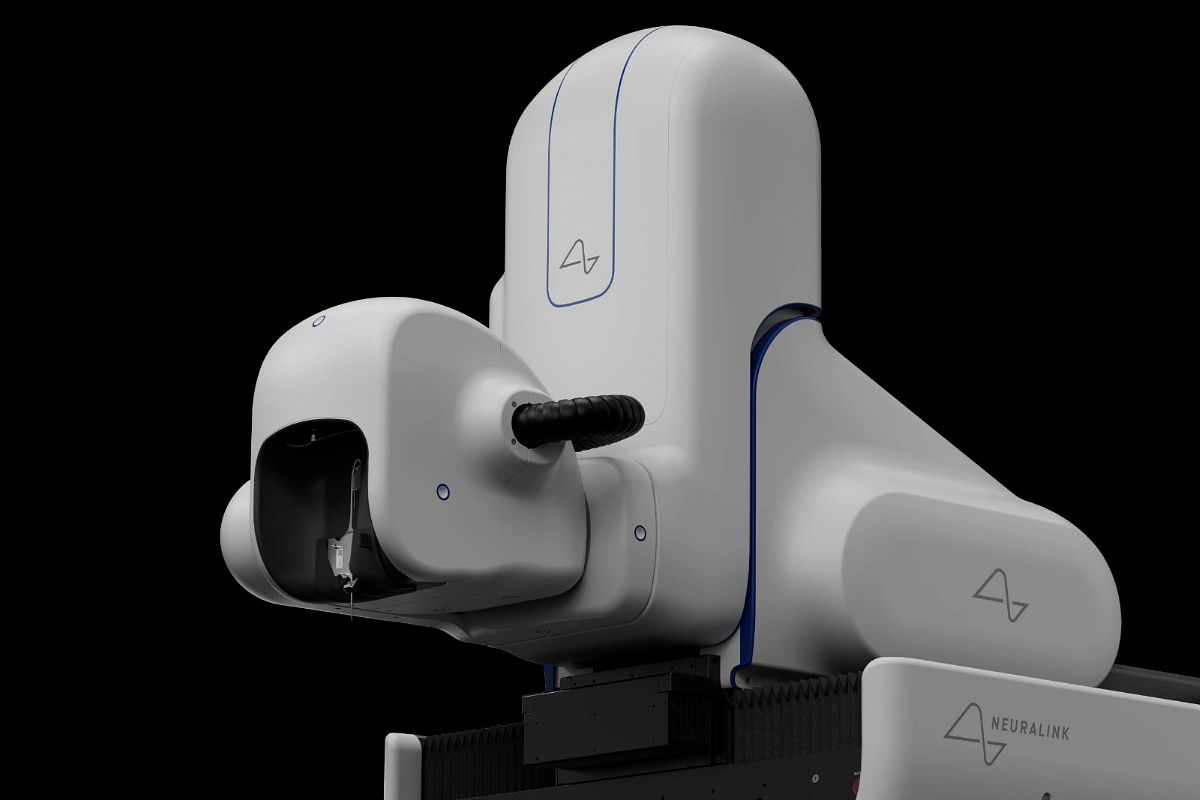News Brief
Elon Musk's Neuralink Implants First Brain Chip In Human: Here's All You Need To Know

Neuralink's surgical robot that inserts wires in the brain
Elon Musk's neurotech startup Neuralink implanted its brain-machine interface device in a human for the first time on Monday (28 January), and the patient is “recovering well", the tech billionaire said in a X post on Tuesday (30 January).
Musk said that the initial results of the implant show "promising neuron spike detection".
He also announced that the first Neuralink product is called "Telepathy", and it enables control of phone or computer, and through them almost any device, "just by thinking".
Also Read: Krishna Janmabhoomi Case: Supreme Court Extends Stay On Survey Of Shahi Eidgah Mosque Till April
"Initial users will be those who have lost the use of their limbs. Imagine if Stephen Hawking could communicate faster than a speed typist or auctioneer. That is the goal," he said.
Neuralink's brain implant device aims to help patients with severe paralysis control external technologies using only neural signals.
Neuralink began recruiting patients for its first in-human clinical trial in the last year after it received approval from the US Food and Drug Administration to conduct the PRIME study back in May.
"The PRIME Study (short for Precise Robotically Implanted Brain-Computer Interface) – a groundbreaking investigational medical device trial for our fully-implantable, wireless brain-computer interface (BCI) – aims to evaluate the safety of our implant (N1) and surgical robot (R1) and assess the initial functionality of our BCI for enabling people with paralysis to control external devices with their thoughts," Neuralink had said in a blog post last year.
According to the company, "R1 Robot will be used to surgically place the N1 Implant’s ultra-fine and flexible threads in a region of the brain that controls movement intention. Once in place, the N1 Implant is cosmetically invisible and is intended to record and transmit brain signals wirelessly to an app that decodes movement intention".
If the device functions properly, it will immensely benefit patients with severe degenerative diseases like ALS, who could someday use the technology to communicate or access social media by moving cursors and typing with their minds.
However, the in-human clinical trial marks just one step on Neuralink’s path toward commercialisation as the medical devices companies have to go through several rounds of intense data safety collection and testing before securing final approval from the FDA.
Support Swarajya's 50 Ground Reports Project & Sponsor A Story
Every general election Swarajya does a 50 ground reports project.
Aimed only at serious readers and those who appreciate the nuances of political undercurrents, the project provides a sense of India's electoral landscape. As you know, these reports are produced after considerable investment of travel, time and effort on the ground.
This time too we've kicked off the project in style and have covered over 30 constituencies already. If you're someone who appreciates such work and have enjoyed our coverage please consider sponsoring a ground report for just Rs 2999 to Rs 19,999 - it goes a long way in helping us produce more quality reportage.
You can also back this project by becoming a subscriber for as little as Rs 999 - so do click on this links and choose a plan that suits you and back us.
Click below to contribute.
Latest